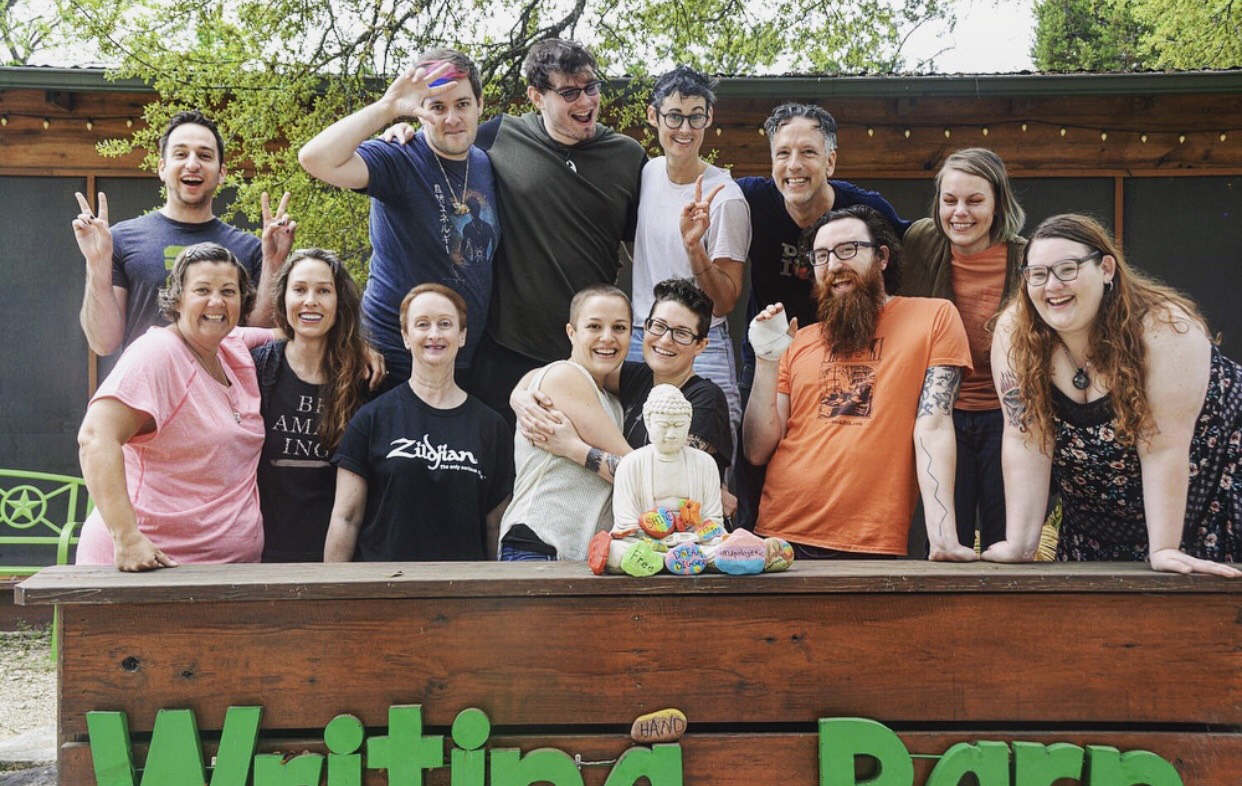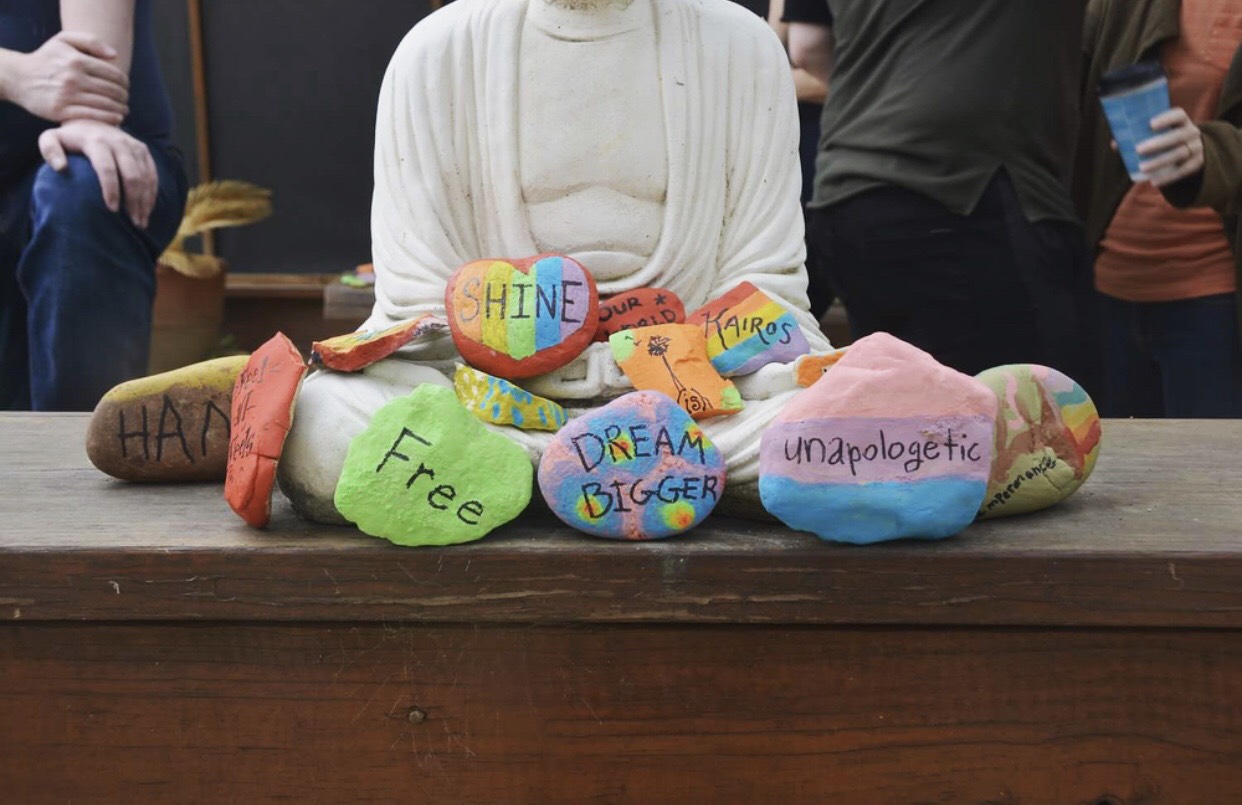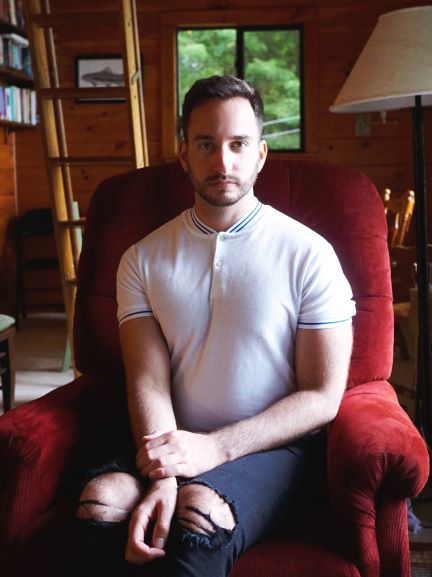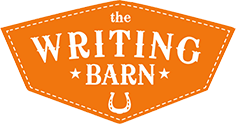Hello Writing Barn Friends! We have another success story we can’t wait to share with you. This time it’s our Writing Barn friend, Ryan La Sala, who came to our most recent Rainbow Intensive. Ryan is a true testament to the power of perseverance and believing not only in your story, but in believing yours is the voice needed to tell that story. We couldn’t be more excited to celebrate Ryan’s wonderful news!

Please share your exciting news (agent signing, book sale, etc)
I’m going to be published! My super queer YA fantasy, REVERIE, turned into a two book deal with Annie Berger at Sourcebooks Fire literally while I was at The Writing Barn! How’s that for quick results? I’m like the microwave dinner of book deals.
How did studying/retreating at The Writing Barn support you in achieving this goal? What workshop/intensives/or classes have you taken with us?
In the spring of 2018 I attended the Writing Barn’s Rainbow Writers Weekend. It was an awesome experience, introducing me to a group of hyper-talented writers that refocused me on writing the stories I love: inventive, inclusive, fantastical stories featuring queer casts.
I also met mentors that were integral in my own career, who I check in with regularly. Even though REVERIE’s deal was already underway when I got to Texas, my time at The Writing Barn was calibrating and clarifying, and so important to the work that begins after you sell a book, which is of course everything else.
How long have you been writing/pursuing an agent/publishing deal?
I’ve been noodling around with the idea of REVERIE since I’ve had gills, practically, but I mark the true beginning of that manuscript’s journey as 2013, when I was in college.
Of course I experimented in college. Who didn’t? I took a stab at a few other ideas, but I’m much too stubborn to put down a project I believe in, and I couldn’t escape the idea that REVERIE, done right, was the book I wanted to kick off my publishing career with. It’s a very strange book. It’s got the tropes I love. It’s got major queer representation. It even has a drag queen sorceress as the villain. For me, it’s very important to that the people in my camp—my agent, my editor—chose me to not only work with me, but work on the stories I wanted to write.
And so after college, even after querying REVERIE unsuccessfully once, I did a hard-reset, re-wrote it all, and then reoriented everything I could in my life towards the goal of taking my writing seriously. Attending The Writing Barn was part of that reset.
So all in all, I’ve been making up stories forever, but the grand act of tricking people into giving me money for them? I’ve been up to that no good for about 5 years.
What fears/hopes did you have before the intensive?
I was late to arrive because of a snow storm, and so my most immediate fear took the form of being dropped off at the edge of a woody ranch in the dead of night, in Texas.
On a serious note, I was intimidated by the concept of workshopping. This was my first formal workshop. I was excited, but worried my comments would prove unhelpful, or that the feedback on my own work would prove tepid. Plus the writing I was sharing was nearly sold, which felt awkward and impossible at the same time.
But the workshop was great. The discussions outside of the workshop were profound, hysterical and important. The feedback I got and the inspiration the weekend gave me has been integral in my revisions for REVERIE, and in my drafting process for my next few projects.
How did the atmosphere of The Writing Barn aid you in achieving this goal?

There’s a very specific and atmospheric magic that only forms when you’ve got not a single thing to worry about except making friends, eating snacks, and maybe getting some work done. Maybe.
The people at The Writing Barn are excited about their work, and they want to engage with your work, and that creates a tremendous amount of creative energy to pull from even months later. Even just the memory of that has kept me afloat since. On a subconscious level I often reference the unencumbered space of The Writing Barn when I sit down at my desk, in Boston, to pick up where I’ve left off.
Have you made friendships/colleagues as well? How has that supported you?
Cori McCarthy and Amy Rose Capetta were the on-premise faculty of The Rainbow Weekend, and now I’m proud to call them both friends, mentors, and perhaps even colleagues. When I have news, they know about it first. When I have an ugly, mess draft, it’ll be their problem.
I also adore other writers I met, and the Writing Barn’s staff. They’re my heart. For personal reasons that have nothing to do with writing, I was in a pretty broken emotional state when I showed up to The Barn. The kindness and love of the other writers is ultimately what put me back together in time to face the world outside The Barn. I’m very thankful for them, and for that. I’m looking forward to helping each and every one of them see their dreams come true.

Why do you think attending workshops/classes is important to writers at all stages of their career?
For me, and for many, writing is the product of solitude. And the seclusion many writers depend on to get their work done doesn’t always ventilate. Strange habits grow in the humidity of an air-tight creative process, creatures with many clicking legs and awful, redundant cries. And because it’s dark in here, and because we don’t know any better, we gather them in our arm and kiss them lovingly. And we’ve got to stop that! It’s spooky! It alarms our family and friends to see us preening our preciousness like that. It frightens the children and lowers property values, and all that.
Really, no matter who you are or where you’re at in your writing career, there is no substitute for worthwhile feedback from people who want to see you get better. I think many writers mistake the things that make their writing bad as the things that make their writing theirs. And that’s just not true. And working with others helps you see the difference.
And if none of that is convincing, let me be the one to tell you that your friends outside of publishing and writing have no idea what you’re talking about half the time, and you might be surprised how nice it is to vent to someone who can actually respond with empathy, and not just sympathy.
What is a takeaway you will carry with you far beyond this good news as you continue to build an develop your career?
I won’t have control over who reads my work after its published, but for a brief weekend I was surrounded by the people who my writing seeks to center. There’s a purity to that sort of utopia that I tune towards every time I open up a manuscript, which wouldn’t exist if I couldn’t regularly envision a world of readers who really do want joyous stories about queer youth winning. I try to recreate that excitement in myself whenever I become intimidated by the dream of the writer I want to become, or daunted by the writing I want to produce, because that excitement proves that people are waiting for me to show up and get my work done.
Any advice you have for writers/creatives having trouble staying the course in pursuing their goals?
If you’re like me and your goals feel so big they might as well be fictitious, getting started also feels like a feat of fantasy. If your goal is to not only clime a mountain, but to build the mountain itself, it feels utterly impotent to sit down and draw a silly little picture of a cartoon mountain with tropey little snowdrifts at the top, with no Pulitzer potential whatsoever. How can something so small count as getting started?
Well it does count. Envisioning what you want helps. Creating a Pinterest board helps. Tweeting to the void helps. Whatever small step gets you excited to do your work helps. So here’s my advice:
Reframe success for yourself. Yes, you want an agent, and yes you want a book deal, but these are the blazing suns that often blot out the constellations that make up every small, incremental victory you should be focusing on pricking out of the darkness in the meantime. Make sitting still your goal. Make getting started your goal.
And if all that fails, and the glorious glow of my insights do not warm you, resort to my most disgraceful and well-used trick: spite. It’s simple. Just assign someone as your nemesis for no particular reason other than they do the work you wish you did, and then check on them often enough that you tire of your own sunken captivation and have to start writing your way upwards for air.
More about Ryan:

Ryan La Sala is a Boston-based writer of queer, young adult fiction and fantasy. Most of his life lessons have been learned from Sailor Moon, which perhaps explains all the twirling. His debut novel REVERIE is forthcoming with Sourcebooks Fire, and if you don’t add it on Goodreads here, he’ll know. He always knows. You can learn more about both him and REVERIE at www.ryanlasala.com, and if you’re a queer writer looking for advice, please feel free to reach out to him on twitter @Ryality.
